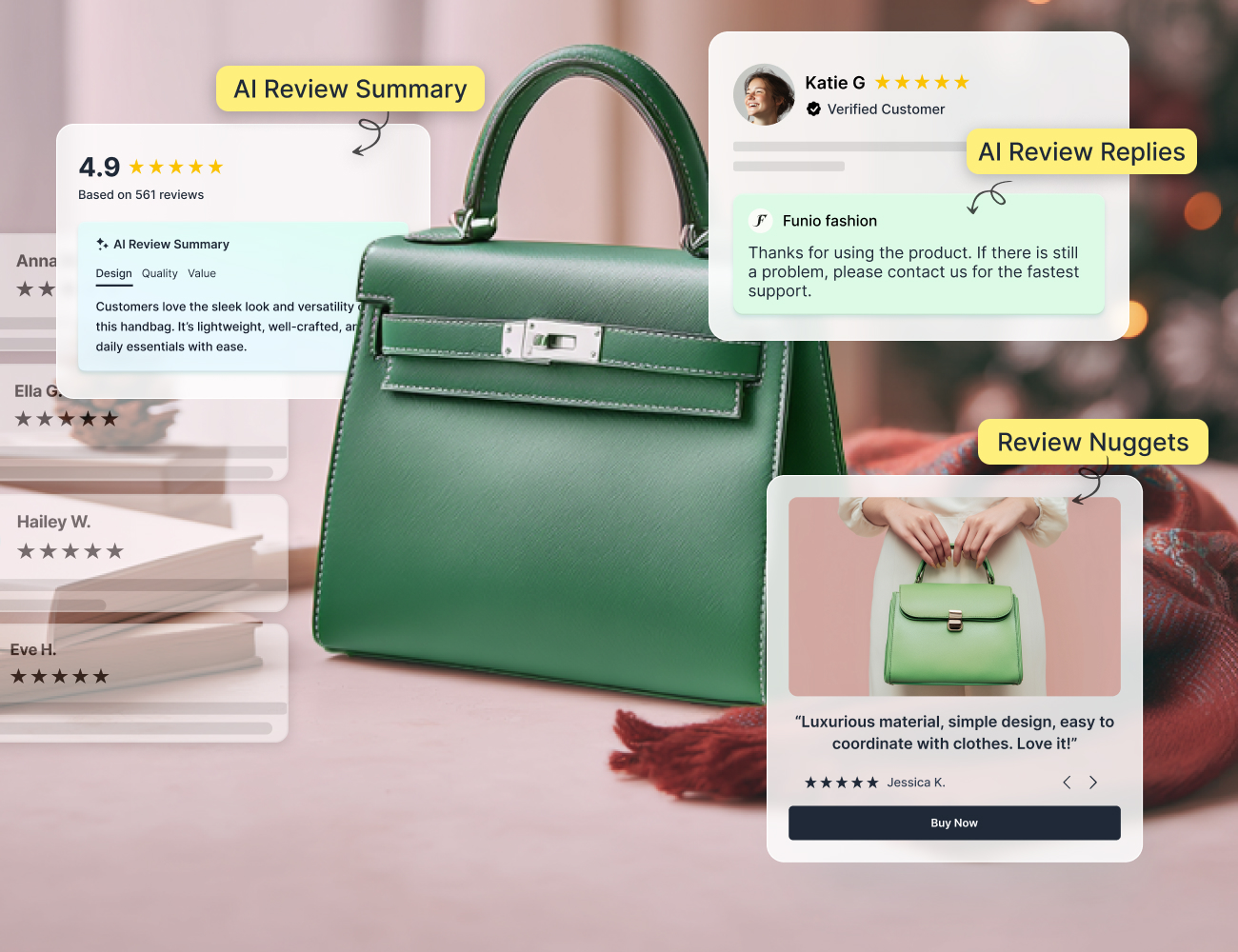
How to Manage Reviews in the BFCM Rush (Without Hurting CX)

Draw Shoppers Back To Your Site Using Review Retargeted Ads & Social Media

Whether you’re new to online reviews or want to improve your current strategy, understanding the different types of reviews and where they appear online is key to success.
In this guide, we’ll break down the major review types, how they impact SEO, where they appear across Google, and how to start collecting high-impact, trustworthy reviews with REVIEWS.io.
Shoppers trust other shoppers. Allowing open feedback builds transparency and shows future buyers you care, especially if you respond to reviews post-purchase.
83% of consumers say reviews are the most important factor in buying decisions. (REVIEWS.io data)
User-generated content (UGC) gives Google valuable keyword-rich context about your business. Reviews can boost your visibility by increasing click-through rates (CTR) and strengthening local SEO signals - which is just one example of how customer reviews can benefit SEO.
Reviews give you real-world product insights - what fits, what works, what’s missing - helping you improve offerings and customer satisfaction over time.
Showing stars in Google Ads and Shopping boosts visibility and credibility, leading to higher clicks and lower CPC. Reviews can significantly improve your return on ad spend (ROAS).
These focus on individual items - including size, quality, ease of use, and satisfaction. They typically appear on product pages, in Google Shopping, or as Rich Snippets in search.

Also known as seller ratings or service feedback, these focus on your overall brand - including shipping, support, and experience. They appear in Google Ads, Google My Business, and review widgets on your site.
REVIEWS.io lets you collect both types of reviews and publish them across multiple touchpoints - automatically.
These can be submitted by anyone, often without proof of purchase (e.g., TripAdvisor, Google My Business). Useful but less trustworthy.
Collected after a confirmed purchase, often via review invitations. These are required for Google Seller Ratings and are more credible and impactful.
REVIEWS.io is a Google Licensed Review Partner, meaning reviews collected through our platform can appear as stars in Google Ads and Shopping.
These are the star ratings shown on Google Ads and Shopping. To appear here, your store needs enough verified company reviews for Google to calculate a rating, with an average score of 3.5 stars or higher, collected through a Google Licensed Partner.

Product stars in Shopping results are aggregated from multiple sources - some verified, some not. More reviews = more visibility.
Reviews from Google My Business (GMB) appear in map listings and local search panels, often seen when users search for “[Business Name] near me.”
Rich snippets allow review stars to appear below your listing. If your site uses structured data or a licensed widget, these reviews can appear in organic search.
Free and widely trusted. GMB reviews appear in Google Maps and Local results, but they’re unverified and don’t show in Google Ads.
Using on-site widgets or custom code, you can collect reviews directly. However, unless verified and licensed, they won’t count toward Seller Ratings.
These platforms offer automation, custom branding, integration with tools like Klaviyo, and full Google compliance. You can request reviews via email/SMS, display them across your site, and syndicate them to search engines and social media.
Sites like Yelp, TripAdvisor, or Autotrader are useful for industry-specific feedback. These reviews show in organic search but not in paid placements.
Rich Snippets are pieces of structured data (HTML) that help Google understand content type - such as products, events, or reviews. They enable review stars to appear in organic search.

Good news: If you use REVIEWS.io, rich snippet markup is handled for you, no dev work needed.
From building trust to improving SEO and lowering ad costs, reviews are one of the most cost-effective growth levers in modern eCommerce. But not all reviews are created equal.
With REVIEWS.io, you can collect verified reviews that meet Google’s standards, display them across every key customer touchpoint, and turn them into high-performing marketing content.
Ready to grow your business with powerful, authentic reviews?
Book a demo and see how REVIEWS.io can help you boost trust, traffic, and conversions with social proof that works.




